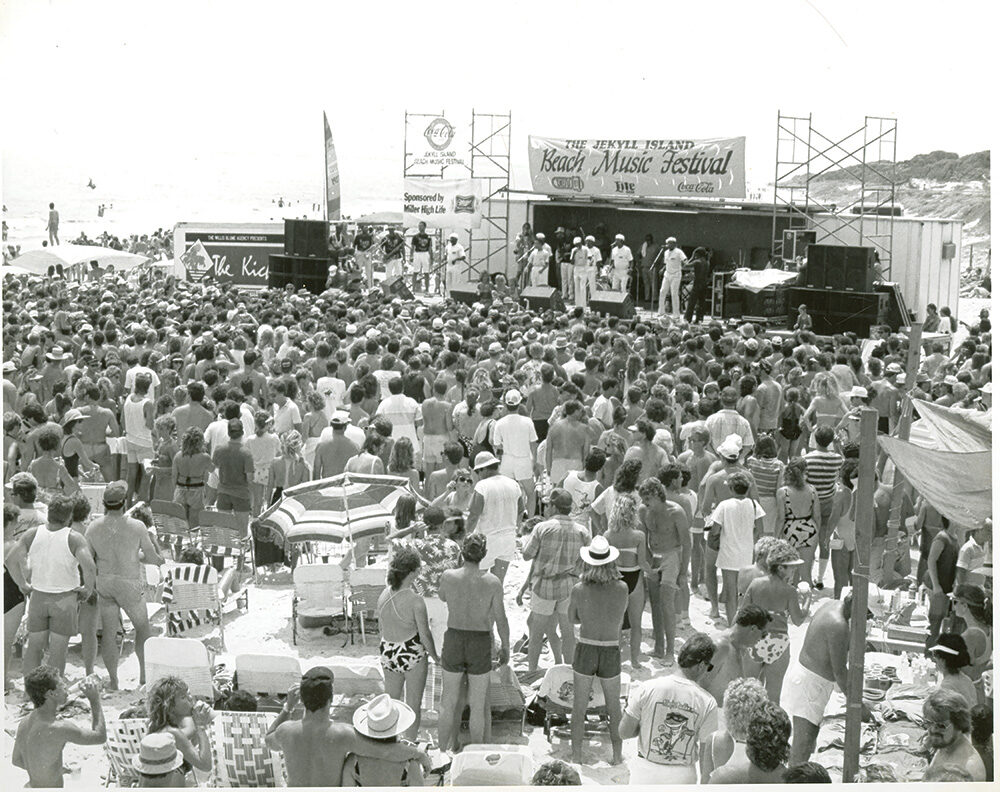How the festival scene has matured from drinking on the beach into a series of high-class, family-friendly, award-winning events.
By JOSH GREEN
During the pinnacle of Jekyll Island’s no-holds-barred but mostly good-spirited bacchanalia known as the Beach Music Festival, rowdy party behavior was expected. It was a major part of its unique character. People shedding their clothes in boiling August sunshine. Shag dancing in the sand to the likes of The Temptations. Swilling cold beer from smuggled-in coolers. Doing body slides down the island’s cherished and extremely sensitive dunes.
If there was a laid-back part to the festival, it was probably reserved for the VIP section, which corralled all the sponsors, provided great stage views, and kept the really good food and drink at a distance from the crazed masses.
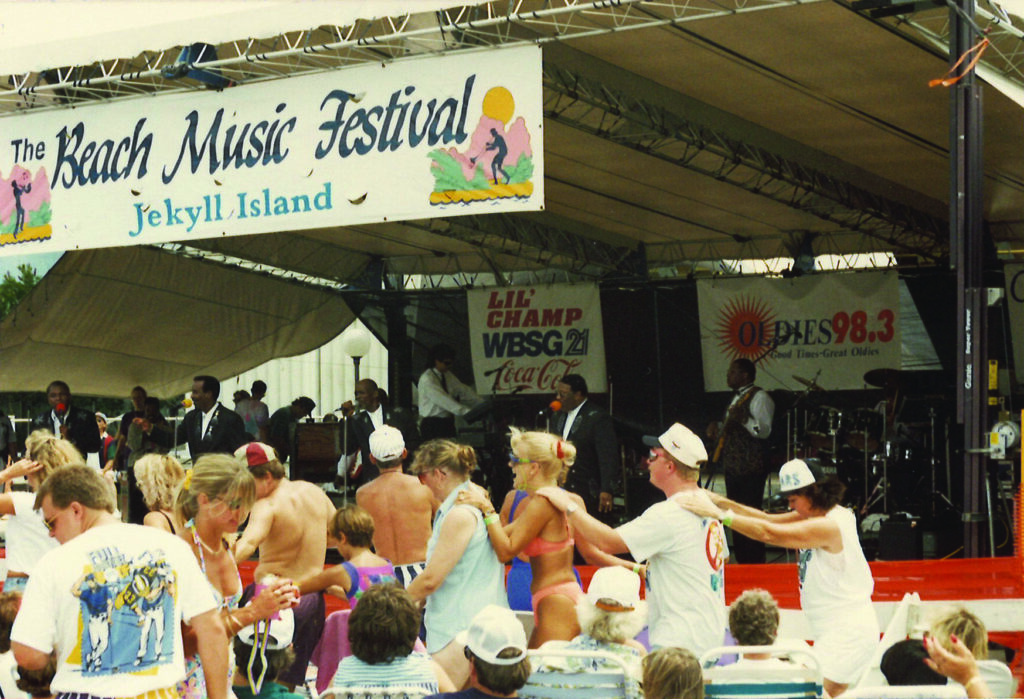
Back then, in the years before the raucous tradition flamed out in 2012, a fairly new Jekyll Island Authority employee found herself in charge of the VIP area at the festival. Then, as now, the JIA rank-and-file was recruited to volunteer for all the big events. It takes an entire island of volunteers, after all, to run these things.
Nancy Kring-Rowan remembers that era with more than a little amazement. Especially the time that the general admission audience started trying to crash the VIP section. That’s when she became a little alarmed.
“I had my husband, who was a Marine, and my brother, a chief in the Navy, working with me because we couldn’t get any volunteers—everybody wanted to go to the party,” says Kring-Rowan, now the JIA events operations manager. “Thank God I had these two big guys helping me [to control the crowd]. It was insane, man! All of the outdoor concerts were free—that’s why it was mayhem!”
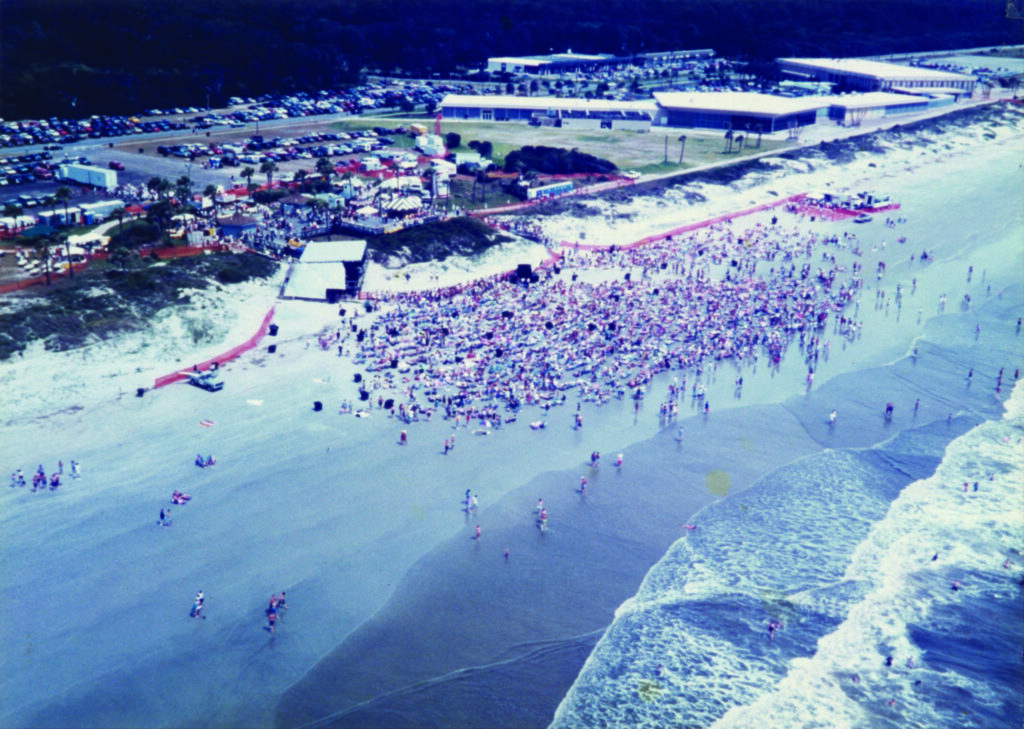
What a difference a decade makes. The beach blowouts of yesteryear were pretty much the antithesis of the sophisticated, highly curated feeling of the Jekyll Island Shrimp & Grits Festival, the island’s marquee event these days. And Shrimp & Grits is just one of a series of festivals and large-scale gatherings throughout the year that are both under control and big successes.
Other longtime Jekyll residents who worked (or boogied) at the beach festival recall it not with horror or annoyance, but with a sense of amused astonishment. As in Yeah, all that actually happened. Their recollections help paint a contrast between the relatively buck-wild old days—before Jekyll was known for its conservation efforts, modernized lodging, and restored historic architecture—and today’s events, which punch well above their weight in terms of regional (and national) magnetism and accolades.
Dan Simpson, a 77-year-old retiree, recalls a time 50 years ago when Jekyll had no formal festivals and no bars. At least none that were legal. What’d they do for fun back then? “We went to St. Simons [Island],” says Simpson, a Jekyll resident since 1971.
That all changed in 1984, when the governing body then known as the Jekyll Island Convention and Visitors Bureau, composed mostly of motel management, launched a music festival on Fourth of July weekend and decided to foot the bill. The dirt-cheap cost to attend—a parking fee of $1—helped attract music lovers from across Georgia, the Carolinas, Florida, and beyond.
“What the motels did, they really jumped their room rates up for that weekend to make their money,” says Simpson, a former fire service and EMS employee and charter boat captain who also worked the beach festivals. At some point, festival management realized the music fest was conflicting with regular Fourth of July tourism, and it was bumped to the dog days of August.
“It seemed like every year it got hotter,” says Pam Brown, a Jekyll resident since 1986, who also worked the festivals. “I can’t tell you how many mornings I’d go for a bike ride and find people crawling out from under the bushes.”
During the earliest music festivals, organizers would wait until the tide went out to drag a flatbed trailer onto the beach near where Tortuga Jack’s restaurant is today. Performers had to be punctual to ensure the festival was over before the sea swallowed the stage. Bathhouses doubled as shelters for treating injuries related to heat or, on occasion, fisticuffs. Georgia State Patrol troopers were posted all around the island. A helicopter patrolled from overhead to spot any trouble.
The entertainers were always from the Motown and rock genres. Along with The Temptations, frequent attendees recall seeing The Embers, The Tams, Bill Pinckney’s Original Drifters, The Showmen, The Swingin’ Medallions, Paul Revere and the Raiders, and Three Dog Night. As the crowds grew, so too did the stage—and the cost of booking bands. Soon, it became a ticketed event. “The first time we had it gated,” recalls Brown, “a lot of people were coming in on their boats. They’d just swim in and float the cooler in on inner tubes.”
As the younger crowd’s musical tastes began to shift, a second festival named Country by the Sea was introduced in the 1990s, booking big names such as Conway Twitty.
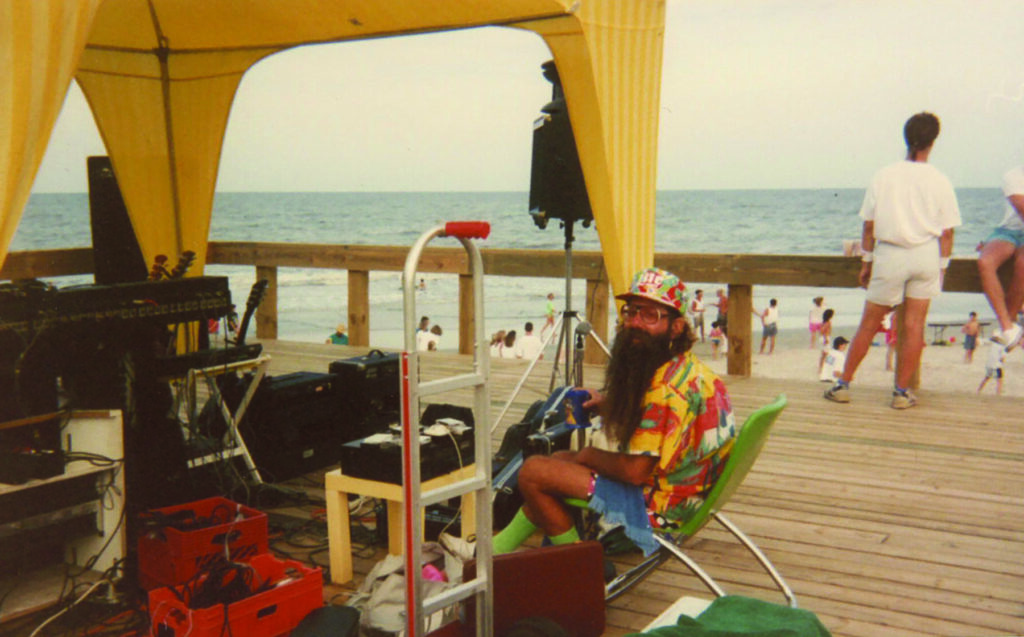
Beyond those two musical shindigs, the most formal annual gathering of that era was an Easter egg hunt in Jekyll’s Historic District, complete with a parade and a search for some 10,000 boiled eggs donated by the Georgia Egg Commission. A less formal mega-party was the Georgia-Florida football game each fall, for which each Jekyll hotel bussed its guests to Jacksonville for the game. If the Bulldogs won, the beach party didn’t stop until dawn. Brown, who worked for the Holiday Inn at the time, said staff would dress as nurses and doctors the next morning—”like a M*A*S*H unit in the lobby,” she says—and serve hair-of-the-dog libations as treatment.
Both of those parties eventually fizzled out, for entirely different reasons. More lodging in Jacksonville for what is known as the World’s Biggest Outdoor Cocktail Party led football fans to stay closer to the action, rather than start their revelry 70-plus miles away on Jekyll. And the stench of dozens of unfound eggs, left to rot in the island sun, did in the Easter egg hunt.
As for the early music festivals, several factors led to their demise: lack of attendance because neither event was free; the aging of Jekyll’s hotels; the decline in overall tourism numbers; and JIA’s renewed focus on protecting and maintaining the island’s natural resources. “We were no longer going to put a large stage on the beach during turtle season,” says Kring-Rowan, “or run electric cables through the dunes.”
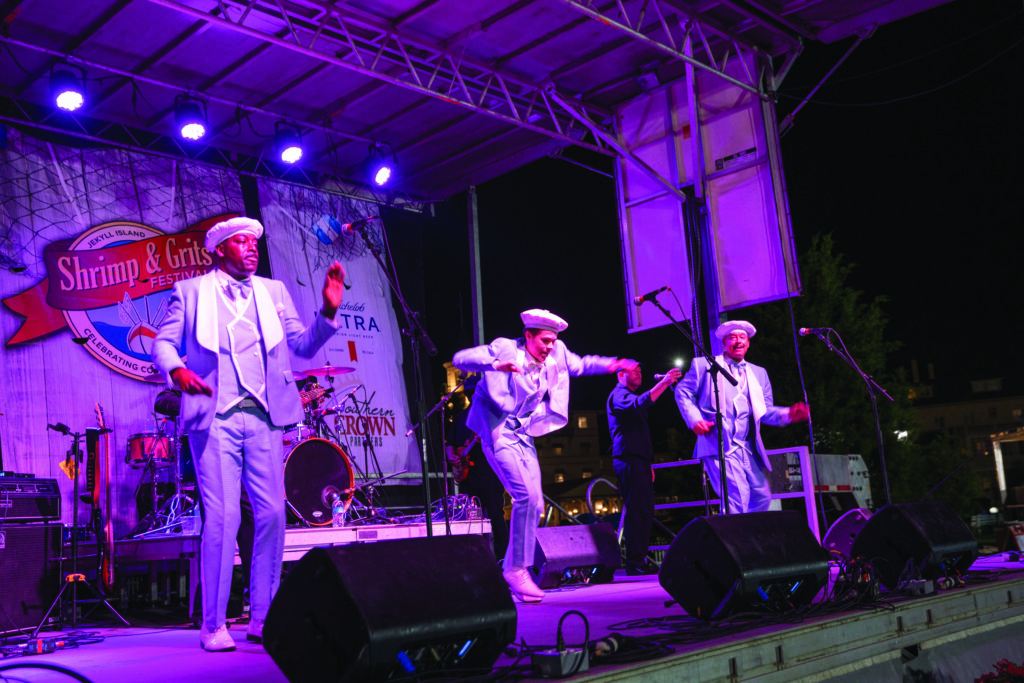
The first Jekyll Island Shrimp & Grits Festival in 2006 marked the dawn of a new era. But even that was hardly refined at the outset.
Brown’s earliest memories of the event include people cooking hot dogs from trailers (no highfalutin food trucks) and vendors who leaned more toward mom-and-pop quiltmakers than renowned artisan metalworkers. Those early days consisted of a tiny stage on the Historic District’s main lawn with a couple of vendors dotted about. The street parking was plentiful.
It’s a different story today. Now held annually in the fall, Georgia’s only festival honoring the classic Southern dish draws crowds of 40,000 to the Historic District. The hotels, many new and others extensively renovated, fill up. Things get so busy that the island’s airport is closed, allowing attendees to park there and be bussed in.
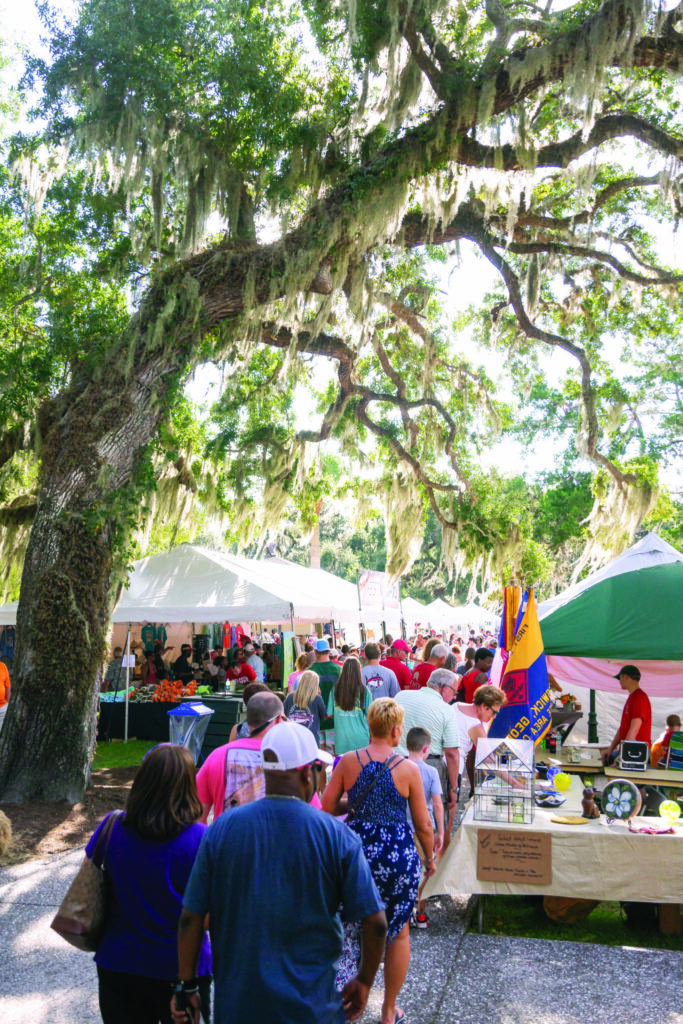
More than 200 arts and crafts vendors come from around the country, with pre-festival judging so stringent that 100 artists were turned down last year for not meeting criteria. A large stage features big national musical acts like The Tams and many other nationally recognized tribute bands.
The secret behind all the relatively newfound success? An increased marketing push, good word of mouth, several years of shared experience, and the all-for-one, selfless efforts of hundreds of volunteers.
During the Shrimp & Grits Festival, all 300 JIA employees are required to lend a hand in such important behind-the-scenes roles as working with Jekyll’s fire department, emergency services, and the State Patrol to ensure plans are in place so that revelers stay safe. Others coordinate with Glynn County Schools for transportation services. Still others form a review committee for the vendors who serve up the festival’s namesake dish. Then there are the hundreds of people who perform countless jobs that make sure the island is picture-perfect for the big show.
It’s a Herculean task undertaken by an entire island of folks, aimed at showing visitors just how beautiful and fun Jekyll can be.
“It’s really relaxed, and you’re walking under the live oak trees, with beautiful white tents with high-end artists, and fantastic food,” says Kring-Rowan of the festival vibe. “It’s all about the food, music, and arts.”
The work has paid off. Shrimp & Grits has won the Southeast Festivals and Events Association’s top prize three times—in 2012, 2017, and 2019—against roughly 200 festivals across 12 states.
So what do longtime Jekyll residents think of today’s big gatherings compared to those in decades past? “We’re doing an incredible job,” says Brown. “From parking in people’s yards to making the airport a parking facility and shuttling—it’s become much more accessible.”
For his part, Simpson sounds a bit wistful for the days when enjoying a day of free music required nothing more than plopping down in the sand. But he appreciates that, these days, the focus is elsewhere, “These festivals now, the good part about them, they’re family-oriented,” he says. “You can bring the whole family, and you don’t have to worry about anything.”
